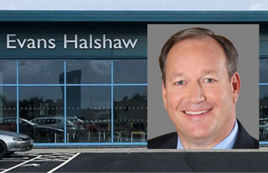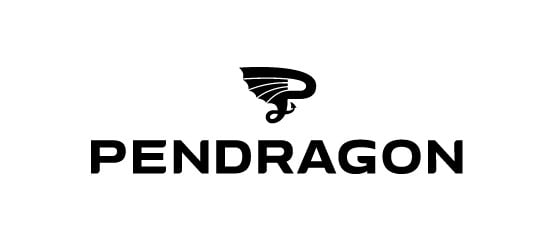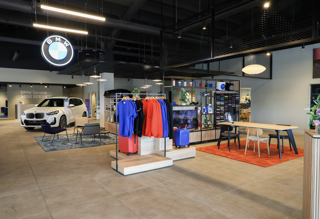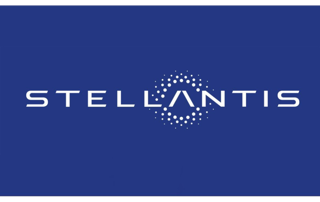Pendragon has delivered a positive set of trading results revealing pre-tax profits rising 10.6% to £36.4 million in the six months to June 30.
The owner of the Stratstone, Evans Halshaw and Car Store brands said like-for-like revenues increased 15% in a strong first half, which it said came "despite what remain challenging economic conditions, with pressure from higher interest rates and ongoing elevated levels of cost inflation".
Bill Berman, Pendragon chief executive, noted that first half revenue and profits were up across all divisions despite those trading challenges with its car retailers managing to deliver strong volume growth for both new and used cars during the period. Car retailing overall delivered a 13.3% growth in revenue and an increase of 23.7% in underlying operating profit.
While the overall new car market continues to be well below pre-pandemic levels, Pendragon said it had seen an improvement in supply during the first half as the market grew overall by 18.4%.
Pendragon saw sales of new vehicles increase 18.3%, in line with the total market and well ahead of the retail market. In addition to the new vehicle volume growth new vehicle gross profit per unit of £2,779, was up 7.9% or £203 compared to the first half of 2022, with the combined impact of both volume and margin increases resulting in a 25.2% increase in new vehicle gross profit.
Pendragon said that it was about to launch a flagship showroom in London’s Mayfair following the launch of its partnership with BYD ahead of the debut of Chinese manufacturer’s second model in the UK.
“While brand awareness remains low, we anticipate that this will continue to grow as new products are launched and BYD increase their brand marketing over time,” said Pendragon which also noted its new partnership with Genesis, across north-east and central England where the first Genesis showrooms are expected in the first quarter of 2024.
 It reported that used vehicle supply remains tight, with the knock-on impact of how production levels since the pandemic resulting in fewer nearly new vehicles. Despite this, changes it made in 2022 continued to underpin Pendragon’s performance, with used vehicle volumes up 7.2% against market growth of 4.1%.
It reported that used vehicle supply remains tight, with the knock-on impact of how production levels since the pandemic resulting in fewer nearly new vehicles. Despite this, changes it made in 2022 continued to underpin Pendragon’s performance, with used vehicle volumes up 7.2% against market growth of 4.1%.
Aftersales revenue grew in the period, up by 8.7% - an increase of 18.6% on a like-for-like basis - with further improvement in the gross margin of 20bps to 51.5% against first half 2022 margin of 51.3%.
Berman said Pendragon had continued to make progress with its strategy to improve performance and unlock value across its car retailers through accelerating big data digital innovation, driving operational excellence and embedding consistent best practice, supported by a lean and efficient cost base.
During the second half of 2023 Pendragon said it would roll out a new rate-for-risk finance model to provide more attractive bespoke finance propositions tailored to individual credit profiles in addition to targeted customer communications using data analytic tools.
“We are continuing to expand the potential opportunity that can be harnessed through data science and machine learning,” the business said, adding, “and we are currently trialling the optimisation of pricing on a localised geographic basis using market characteristics for individual vehicles and consumer buying behaviours.”
Pendragon had said last week that it would sell its UK motor and leasing businesses to US motor group Lithia Motors for £250 million, valuing Pendragon at 27.4p a share. A shareholder meeting on October 6 is already scheduled on this deal which plans to sell all its motor businesses to Lithia and leave Pendragon's Pinewood software business as a standalone, continuing publicly-listed company. Two new bidder groups have since emerged.
Reporting on the first half performance of the Pinewood software business, Pendragon noted that 90% of Pinewood's revenues are derived on a recurring basis.
“Whilst Pendragon remains an important customer to Pinewood, as Pinewood has grown, Pendragon's proportion of the Pinewood total user base has been diluted to around 17% with intra-group charging maintained at a competitive market rate.”
During the first half of the year, user numbers increased by 7% compared to the same period last year, ending the first six months with over 32,800 users.
Internationally, there was a 12% increase in average user numbers at 6,500. “All international markets grew user numbers, with Pinewood benefiting from the launches in Singapore and the Middle East at the end of 2022,” it said. Pinewood said it is now also preparing to launch in the Japanese market.
 “There has also been good further progress in terms of OEM support at an international level,” it said. ”Pinewood continues to build a strong partnership with Volkswagen and Porsche, which has enabled constructive dialogue with large international dealer groups in both the European and Asia Pacific markets.”
“There has also been good further progress in terms of OEM support at an international level,” it said. ”Pinewood continues to build a strong partnership with Volkswagen and Porsche, which has enabled constructive dialogue with large international dealer groups in both the European and Asia Pacific markets.”
Leasing business Pendragon Vehicle Management meanwhile reported increased revenue compared to the same time last year which was generated by a small increase in sales values along with higher revenue in short term hire.
“Profit on disposal per unit remains at higher levels compared with pre-pandemic comparators as used vehicle prices have remained at elevated levels, with disposals in the half still based on residual values set before these price increases occurred,” Pendragon said.
“This is underpinned by the ongoing shortage of high quality used cars. There is increased demand for new vehicle leases in the corporate sector and despite new vehicle lease deliveries increasing by 23% in the first half compared to the first half of 2022, the level of vehicles on order for our customers remains at higher than normal levels, with over 2,000 orders outstanding.”
Manufacturer supply constraints easing slightly on car supply has resulted in new vehicle delivery lead times decreasing compared to lead times in 2022.
Pendragon’s Berman said driving operational excellence and best practice will continue to be a key management focus with performance measures and peer benchmarking applied on a real time basis across the division, helping to drive performance.
“We remain mindful of the potential impact that external pressures may have on consumer sentiment and disposal incomes, however we remain confident in the group's ability to continue to build on our strategic progress in the second half,” he said.






















Login to comment
Comments
No comments have been made yet.